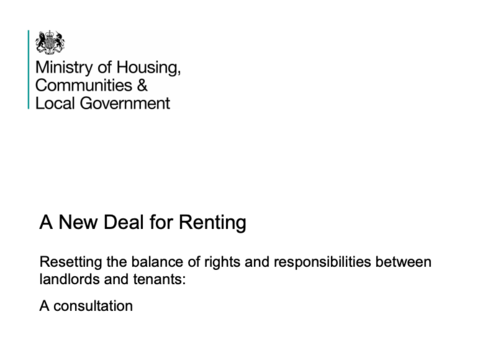During April 2019, the government announced an intention to ban the use of section 21 notices for the private rented sector in England.
The long-awaited consultation following that announcement has today been published titled “A new deal for renting: resetting the balance of rights and responsibilities between landlords and tenants”.
This follows a consultation announcement by the Welsh Government to increase the notice period of the replacement of section 21 from 2 months to 6 months and increasing the period of the first service to 6 months from the beginning of a tenancy.
The England consultation is looking for responses which include how section 21 has been used by landlords in the past and the circumstances in which landlords should be able to regain possession once it has been abolished. This wording seems to indicate the decision to abolish has effectively been made.
Rt Hon James Brokenshire MP Secretary of State for Housing, Communities and Local Government says in the ministerial forward to the consultation:
It is time for a generational change to the law that governs much of the rental sector. That is why we are proposing that our changes apply to all landlords who use the Housing Act 1988.
For tenants, this means being able to rent with certainty. Certainty that you will not be asked to leave without being given a fair reason and certainty you will be protected from rogue landlords who seek to abuse their position.
For landlords, this means being able to rent properties safe in the knowledge that your investment is protected, and you will be supported to provide the safe, secure, and decent homes the nation needs. It means knowing you can swiftly take action when things go wrong, through a redress system that works, and works fairly.
We urge all landlords and agents to respond to the consultation which must be done by 11:45 pm, 12 October 2019.
Of course, the Guild and the Fair Possessions Coalition we are part of will respond but it’s still essential that individuals respond too. In the case of consultations, numbers of responses are crucially important and having one response from many does not carry as much weight as large numbers of individuals.





As we are lay people, regarding the Law, it would helpful if the Guild wrote a statement that we could send.